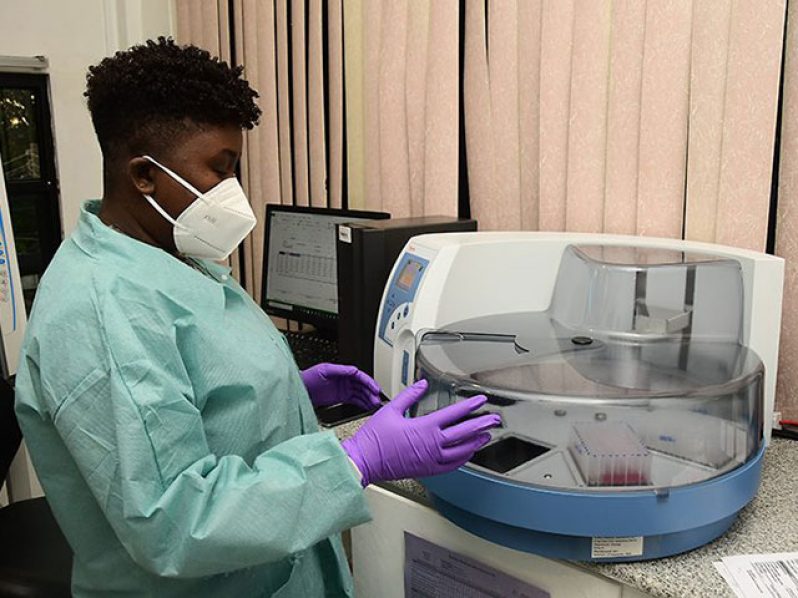— says CARPHA Executive Director
THOUGH the Caribbean’s capacity to define the COVID-19 variants (or strains) of concern is limited, Executive Director of the Caribbean Public Health Agency (CARPHA), Dr. Joy St John emphasised that there are some changes in the transmission of the disease that can alert local health authorities to their possible presence.
In an exclusive interview with the Guyana Chronicle on Friday, Dr. St John said that CARPHA, in collaboration with the University of the West Indies (UWI)’s St Augustine campus, has been conducting genomic sequencing, which is a complex genetic analysis that allows scientists to define the variants of COVID-19.
Dr. St. John, however, noted that surveillance of COVID-19 within the countries’ populations would indicate whether there are changes in the transmission of the disease or the rate of transmission. These could be possible signs of variants.
“All of those are indications that something has changed, and it might be varying,” the public health official said, adding: “We recommended to the member states that their index of suspicion for changes in the pattern of spread of the virus should include the possibility of importation of the variants.”
So far, the three variants of concern across the world are the United Kingdom (UK)’s, South Africa’s and Brazil’s. It has been found that they are all more transmissible, which means that they are more readily spread from person-to-person. And in the Caribbean, only the UK variant has been detected in a few countries thus far, from the sequencing that has been done over the past few weeks.
CARPHA, through its COVID-19 progress reports, has indicated that the Caribbean is a “high risk” region for the importation of the variants, due to travel into and within the region.
On Friday, Dr. St. John explained that while the Caribbean is a tourism-dependent region, it is also characterised by a significant amount of business travel. And this mode of travel, she explained, does not necessarily need to originate from the countries where the variants have been discovered, but from other countries such as the United States, to which the variants have already spread. This allows for greater leeway for the spread of the variants.
“We do have a lot of traffic in South America, not just the fact that you (in Guyana) share border… but there’s also other travel tourism and business reasons. So, we are going to search; we’re going to keep searching and hope that we will get regular samples being sent so that we can keep checking (for the variants),” she highlighted.
Guyana has been able to benefit from genetic sequencing through CARPHA, and has already sent 10 samples to be analysed. Though these samples were not any of the variants of concerns, it cannot be definitively said that Guyana does not have any of the variants circulating.
Amid growing concerns of variants circulating in Guyana, particularly since Guyana shares a porous land-locked border with Brazil, Virologist and Senior Lecturer at UWI Jamaica, Dr. Joshua Anzinger, told this newspaper that if persons adhere to the existing health guidelines, it will help to mitigate the impact of these variants.
“I think that regardless of whether you have (the variants) or not, it’s still the basic same principles of public health,” Dr. Anzinger said in a recent interview with the Guyana Chronicle, adding: “You want to keep wearing your masks; you want to keep social distancing; you want to make sure that you’re testing as many people as possible.”
Dr. St. John also affirmed that CARPHA has maintained all of its recommendations and guidelines geared at mitigating the effects of COVID-19. She emphasised that CARPHA still recommends maintaining a physical distance of six feet (or two meters).












